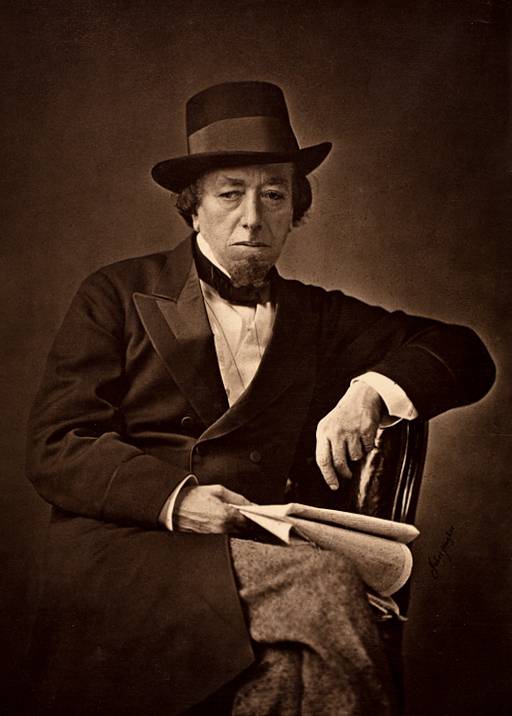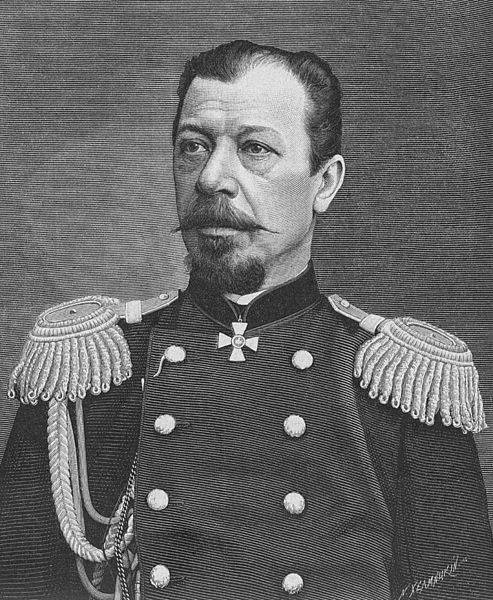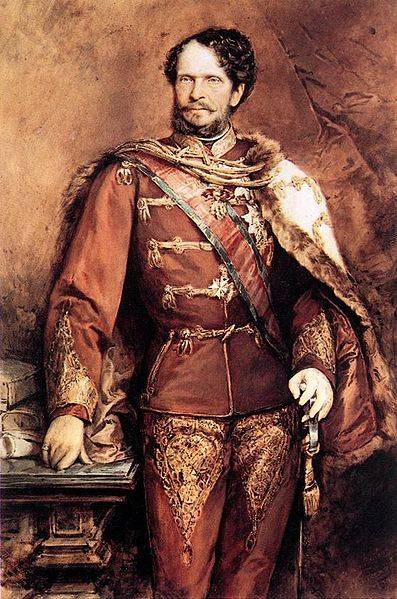How England battled Russia with Austria-Hungary and Turkey
By interfering in the affairs of Turkey, the Russian government did not want a conflict with Austria-Hungary. It was decided to first try to negotiate with the Habsburgs. The Chancellor and the Minister of Foreign Affairs of the Russian Empire, Alexander Gorchakov, simultaneously tried to maintain Russia's authority among the Balkan Slavs and at the same time not quarrel with Austria-Hungary. To this end, he decided to pursue a policy of intervening in Balkan affairs in agreement with Vienna. Such a politician was in line with the agreement of the three emperors. But in the end, both “allies” pursued their own goals and tried to prevent the “partner” from solving their tasks on their own.
In August, 1875, Gorchakov raised in Vienna the question of the need for joint performance. The Russian government proposed jointly demanding Porta to grant the Slavs autonomy, like the one that Romania had. That is, Gorchakov inclined Vienna to the de facto independence of Herzegovina and Bosnia. However, the creation of another South Slavic principality did not suit Vienna, it could cause unrest among the Slavic subjects of the Habsburgs. In addition, the Austrian elite has already planned its own expansion in this area. But Andrassy, in order to seize the initiative of Russia, and avoid the entry of Serbia into the war, agreed to a joint statement with the Russians in defense of the rebels. Vienna put forward its own program of appeasing the rebellious Turkish provinces: to carry out only minor administrative reforms in Bosnia and Herzegovina, while maintaining the power of the Sultan. 30 December 1875 of the year Andrassy handed a note to the governments of the great powers proposing a reform project in Bosnia and Herzegovina. The Austrian government invited the great powers to joint actions with the aim of corresponding influence on Porto, as well as on the Slavic rebels. 31 January 1876, the Austrian project was transferred to Porte by the ambassadors of the great powers.
Turkey accepted this “advice” and agreed to reform. The rebels abandoned this plan and demanded the withdrawal of Turkish troops. “The people,” said the representatives of Herzegovina, “cannot accept a plan in which there is not a word about real freedom.” The rebels demanded real guarantees from the great powers. Thus, Andrassy’s plan failed.
It should be noted that the cautious policy of Russia in this period was associated not only with the fact that the state was weakened by the defeat in the Crimean War, but by the strong influence of the pro-Western, liberal wing in the Russian elite. It was supported by the liberal bourgeoisie, St. Petersburg's large banks, the exchange associated with railway construction (which was rich in Russian and foreign speculators) and foreign capital, interested in attracting it to Russia. The Westernizers placed Europe first (West). These circles were in favor of peace and the actions of Russia were tied to the opinion of Europe. The leader of this party was Finance Minister M.H. Reitern, who argued that Russia from the war would immediately and permanently lose all the results achieved by it, thanks to 20-year reforms,. The instability of the financial system required a peaceful policy and the abandonment of active support of the Balkan Slavs. The same line was also supported by a part of the conservative nobility, which did not share the opinion of the Slavophils that "Slavic affairs" would strengthen the autocracy. The conservatives believed that if Russia adheres to the “liberation principles” in foreign affairs, this could lead to internal unrest. In particular, Count Peter Shuvalov, the Russian ambassador in London, adhered to this line.
Tsar Alexander Nikolaevich and Gorchakov were themselves against the war and were afraid of its possible consequences. Therefore, they maneuvered between the Slavophiles and their opponents. They also had to take into account the financial and economic difficulties of the Russian Empire, which was not ready for a protracted war. Hence the inconsistency of the policy of St. Petersburg in this period. Gorchakov wanted to do something for the Balkan Slavs and at the same time did not want war. He decided that it would be most advantageous to come to an agreement with Vienna on this issue, this would allow Russia to maintain Russia's prestige in the Balkans and avoid war. The ambassador in Constantinople, Ignatiev, bent his line: he tried to solve the eastern crisis, including the Balkan affairs, by means of a separate Russian-Turkish agreement. He hoped for a Russian-Turkish alliance, such as the Unkar-Iskelesi Treaty of 1833, which provided for a military alliance between the two countries in case one of them was attacked. The secret supplementary clause of the treaty allowed Turkey not to send troops, but demanded the closure of the Bosphorus for ships of any countries (except Russia). Not without the participation of Ignatiev, the sultan promised reforms to the Balkan Slavs, including the equalization of Christians in rights with Muslims, tax cuts, etc. However, the rebels did not believe the promises of the Turkish authorities.
Gorchakov invited Andrassy and Bismarck to discuss the situation at the meeting of the three ministers, in conjunction with the Russian Tsar's vizier in the capital of Germany. The meeting took place in May 1876. It coincided with the resignation of the Grand Vizier, Mahmoud-Nedim-pasha, who was a conductor of Russian influence in Turkey. His fall meant the victory of the pro-British party in Constantinople. That is, now Turkey was counting on the full support of England, while the British were urging the Ottomans against the Russians. In addition, the uprising against the Ottoman yoke has spread. Unrest swept Bulgaria. This could not but affect the policy of St. Petersburg towards Turkey.
Russia insisted on giving autonomy to all rebel Slavs. Gorchakov wanted to settle the Eastern question with the help of the union of three emperors and the “European concert”, which would give Russia and Austria-Hungary mandates for the organization of autonomous regions in the Balkans. However, the Austrians were opposed to the significant success of the Slavic national liberation movement and the strengthening of Russia, at least in part of the Balkan Peninsula. Andrassy, in line with the traditional Jesuit policy of Vienna, did not openly oppose Gorchakov’s projects, but made so many amendments and changes to them that they completely lost their original appearance and turned into an improved note of Andrássy himself from December 30 of 1875. Now there was a kind of international guarantees that the rebels demanded. So in the end came the Berlin Memorandum, which in general was in the interests of Vienna. At the same time, it was vaguely stipulated that if the steps outlined in it did not give proper results, the three empires would agree to take "effective measures ... for the sake of preventing the further development of evil."
The Berlin Memorandum was adopted on 13 on May 1876 of the year. The governments of France and Italy reported that they agreed with the program of the three empires. But England, represented by the government of Benjamin Disraeli, opposed the new intervention in favor of the Balkan Slavs. England pursued a similar policy with the Austrian. London did not want either increased Russian influence in the Balkans and in Turkey, nor the liberation of the southern Slavs. The masters of Britain viewed Russia as an adversary in the Big Game, where the Russians acted as rivals of England, challenging its primacy in the Ottoman Empire and in the whole East. Just at this time, London was preparing a series of activities to expand and strengthen British rule in India. The British subjugated Kelat and planned to conquer Afghanistan. The British also embarked on the seizure of the Suez Canal, entrenched in Egypt, a key point that allowed control of a large part of the Mediterranean Sea, North Africa, and the most important maritime communication that linked Europe to South and Southeast Asia. After the construction of the canal through the Suez Isthmus (1869), the main communication lines of the British Empire ran through the Mediterranean. It is clear that the British did not intend to release Russians from the Black Sea to the Mediterranean, to give them Constantinople. London sought to control not only Egypt, but the entire Turkish empire. Put Turkey under control and set it on Russia. This allowed England to extend its influence over the entire Middle East and more firmly lock Russia in the Black Sea, stop the Russian movement to the south and in the future try again to drive the Russians deeper into the continent.
There were British and other strategic considerations. London was plotting aggression in Afghanistan, which meant complications with Russia in Central Asia. For England, it was beneficial to divert Russia's attention to the Middle East, the Balkans, push Russia and Turkey together, and cause an Austro-Russian conflict. In Central Asia, Russia and England were face to face; other great powers had no serious interests here. At the same time, Russia was closer to the scene of the conflict, that is, in theory, it could use more manpower and resources to stop British expansion. No wonder the British were afraid for a long time that the Russians would challenge them in India and use the hatred of the local population for the invaders. Thus, it was beneficial for England to unleash a serious conflict in the Balkans, where it was possible to fight with Russia through the hands of others - with the help of the Ottoman and Austro-Hungarian empires. By refusing to accept the Berlin Memorandum, Disraeli won the favor of the Ottoman government and took a big step towards turning Turkey into a tool of global British politics. England upset the "European concert", weakened the alliance of the three emperors and encouraged Porto to resist. In order to instill even more decisiveness in Porto, the British government sent a fleet to the Straits, which was stationed at Dardanelles.

British Government Head Benjamin Disraeli
Serbo-Turkish war
Meanwhile, the situation in the Balkans continued to deteriorate. Almost simultaneously with the appearance of the Berlin Memorandum, the Turks drowned the Bulgarian uprising in blood. Bishibuzuki and Circassians (irregular troops of Turkey) massacred thousands of people, torturing and abusing them before. After the open resistance of the Bulgarians was broken, the Ottomans continued terror and repression. The slaughter in Bulgaria caused an increase in sympathy for the Slavic movement throughout Europe.
Gorchakov still hoped to convince the Ottoman government. It was agreed that all the great powers, except England, will support the Berlin Memorandum. However, at this time important events occurred in Constantinople. 30 May 1876 in Turkey there was a palace coup. At the head of the conspiracy were the grand vizier Mehmed Rushdie, the war minister Hussein Avni and the minister without a portfolio Midhat Pasha. The weak sultan Abdul-Aziz, who was suspected of being willing to yield to European powers, forced him to abdicate in favor of his nephew, Mehmed Murad (although the new sultan was no better, suffered from a mental disorder and was drunk). 4 Jun former sultan was killed (officially announced that it was suicide). As a result, the patriotic (nationalist) and Muslim party, which stood in belligerent positions, prevailed in Constantinople. Gorchakov, fearing a sharp refusal of Porta, which led to grave consequences - the need to reconcile with the diplomatic defeat and defeat of the Slavic movement or take decisive and risky actions, suggested postponing the performance of the five great powers until the situation in Turkey stabilized.
Meanwhile, a new crisis was brewing in the Balkans. The Serbian and Montenegrin governments could no longer hold back the movement in support of the Slav brothers, and were actively preparing for war. The Prince of Serbia, Milan Obrenovic, in June 1876, was able to agree with the Prince of Montenegro, Nicola, on joint actions against Turkey. Representatives of Russia and Austria-Hungary in Belgrade and Cetinje officially warned against this. But the Serbs did not heed the opinion of the great powers. The Serbs were confident that as soon as the war began, the Russians would be forced to support the Slavic brothers and would not allow the defeat of Serbia. In Russia itself, society actively supported the southern Slavs. Vienna offered St. Petersburg joint military intervention in order to stop Serbia and transfer Bosnia and Herzegovina to the arm of Austria-Hungary. But for Russia such an intervention was unacceptable. Petersburg demanded autonomy for Bosnia and Herzegovina and did not want to give up the provinces of Austria.
Montenegro and Serbia declared war on Turkey 28 June 1876 of the year. Hundreds of Russian volunteers went to Serbia. Russian General Mikhail Grigorievich Chernyaev - the hero of the defense of Sevastopol, the conquest of Turkestan and the storming of Tashkent, was appointed commander-in-chief of the Serbian army. The news of his appointment as Commander-in-Chief to the main Serbian army sent a signal to the influx of Russian volunteers to Serbia and raised a Serbian attempt at the degree of the Russian national cause. It should be noted that the Russian authorities tried to prevent Chernyaev himself from going to Serbia. And when the Russian-Turkish war began, Chernyaev fell into unspoken disgrace and the man who symbolized Slavic unity and fraternity remained out of work. A talented commander was left to the staff at the European theater of war. Then he went to the Caucasus, where, too, did not wait for any appointment. As a result, as A. I. Denikin wrote: “... ascended more by honoring the army, people and society, Bely General — Skobelev advanced. Another worthy of his contemporary Chernyaev remained in the shadows. The conqueror of Tashkent lived in retirement, in offensive idleness, on a meager pension, which, in addition, imposed control over absurd, purely formal reasons. ”

Russian General Mikhail Grigorievich Chernyaev
Reichstadt Agreement
The Serbo-Montenegrin-Turkish war increased the danger of a big war. Vienna wanted to “calm” the Serbs and occupy Bosnia and Herzegovina. But Petersburg was against such actions. And without Russia's consent, Austria did not dare to act. If Turkey had won the war, and she had military and economic superiority over the Serbs, then the question would be about Russia's intervention to save Serbia. At the same time Austria would inevitably intervene in the Russian-Turkish conflict. Petersburg feared such a conflict no less than in Vienna. If, unexpectedly, Serbia and Montenegro had won, then one would have expected the collapse of the Ottoman Empire, with the separation of European provinces. In this case, one could expect the struggle of the great powers for the Turkish inheritance. Thus, Russia was in a very difficult situation. Petersburg in the second half of 1876, tried to solve a difficult diplomatic task: at the same time to support southern Slavs and avoid a big war.
26 June (8 July) 1876 was the meeting of Emperor Alexander II and Foreign Minister Prince A. Gorchakov with the Austrian Emperor Franz Joseph and Foreign Minister D. Andrássy in the Reichstadt Castle. As a result of the negotiations that took place, neither a formal convention, nor even a protocol was signed. On the instructions of Gorchakov and Andrássy, only records of the negotiations were made, and the Russian and Austrian texts are somewhat different from each other. According to both records, in the Reichstadt, the parties decided to adhere to the "principle of non-intervention": Russia and Austria promised not to intervene in the war of Serbia and Montenegro against the Ottoman Empire and to close the Austrian ports of Klek and Kattaro, through which the parties (mainly Turkey) received weapon and ammunition. The agreement stipulated that "in no case would they render assistance to the Turks against Christians."
Regarding the future, it was decided that in the event of military success of the Ottoman Empire, both powers would act by mutual agreement. Russia and Austria will demand the restoration of the pre-war situation in Serbia, up to the destruction of the Turkish fortresses, as well as reforms in Bosnia and Herzegovina. In the event of the victory of Christians, both powers committed themselves not to promote the formation of a large Slavic state. Russian diplomacy also insisted on some increase in the territory of Serbia and Montenegro. According to Gorchakov’s record: “Montenegro and Serbia will be able to annex: the first is Herzegovina and the port on the Adriatic Sea, the second is some parts of old Serbia and Bosnia”. On the other hand, Austria in this case received the right to acquire "Turkish Croatia and some border parts of Bosnia with it, according to a plan to be established later."
According to the record of Andrassy, Montenegro should have received only a part of Herzegovina. The rest of Bosnia and Herzegovina was to receive the Austro-Hungarian Empire. Thus, the discrepancies between the Austrian and Russian records were quite significant: the Gorchakov record did not mention Austria’s rights to Herzegovina.
Russia received the right to reclaim the south-western Bessarabia, rejected under the Paris Treaty of 1856, and Batum. In the event of the complete collapse of the Ottoman Empire in Europe, Bulgaria and Rumelia (according to Gorchakov) could form independent principalities within their natural borders. The Austrian entry provided for Bulgaria, Rumelia and Albania to become autonomous provinces of the Ottoman Empire. Epirus and Thessaly supposed to transfer to Greece. Record Andrassy provided for the transfer of Greece and Crete. Constantinople was supposed to be a free city.

Foreign Minister of Austria-Hungary Gyula Andrássy
Information